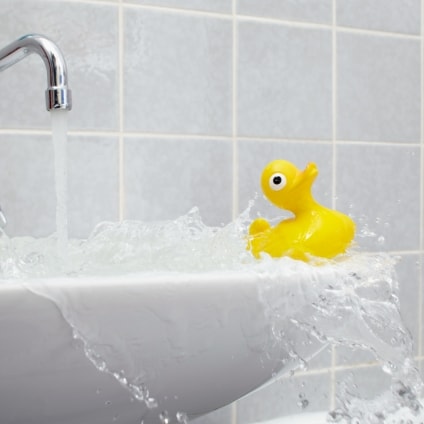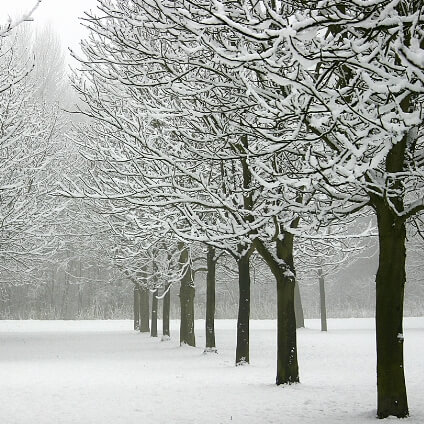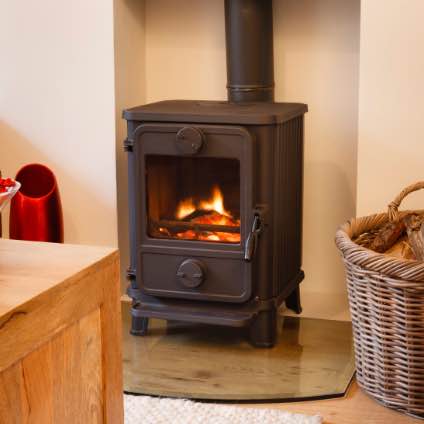Winter and Cold Weather Safety Tips for Homeowners and Renters

Even when the weather outside gets frightful, preparing a plan and following best practices can help to ensure your dwelling, whether you are a homeowner or renter, remain safe and delightful throughout the winter season and during periods of extreme cold.
Winter weather in New England is as unpredictable as it can be intense – whether it is freezing temperatures, powerful and disruptive snowstorms, more hours of darkness, or black ice, the season brings about a unique set of potential hazards that, with a plan in place and proper precautions taken, can be minimized to keep people and your property safe.
Preparing for Winter and Cold Weather
Weather events, like polar vortexes and winter storms that may range from moderate snow in a short amount of time to a blizzard lasting for days, are occasions that require thoughtful preparations. Before a winter storm hits or periods of extreme cold set in, make sure you know key terms:
- Winter Storm Watch: Be alert, a storm is likely.
- Winter Storm Warning: Take action, the storm is in or entering the area.
- Blizzard Warning: Snow and strong winds combined will produce blinding snow, near zero visibility, deep drifts, and life-threatening wind chill. Seek refuge immediately!
- Winter Weather Advisory: Winter weather conditions are expected to cause significant inconveniences and may be hazardous, especially to motorists.
- Frost/Freeze Warning: Below freezing temperatures are expected and may cause damage to pipes, plants, and/or fruit trees as well as contribute to the formation and accumulation of black ice.
- Cold Wave: As defined by the U.S. National Weather Service, a rapid fall in temperature within a 24-hour period requiring substantially increased protection to agriculture, industry, commerce, and social activities.
Before the winter season begins and especially as cold weather and/or a winter storm begins to approach, it is important to ensure you have the supplies you need and that you have taken precautions to mitigate risks:
- Survey Your Surroundings: Review in and around your dwelling to determine what might be your greatest risk potential (loss of heat, frozen pipes, ice dams, roof stability, carbon monoxide, loss of access dur to snow/ice) and take action to reduce any risks you might discover. Also, be sure to inventory (list, take pictures and video) valuable equipment should you have to file an insurance claim at a later date.
- Snow and Ice Removal: Be sure you have supplies like snow shovels, rock salt, and other items and/or equipment that will be needed to clear paths and treat them to prevent the formation of black ice. Develop a post-storm snow and ice removal plan.
- Home Heating and Lighting: According to the U.S. Fire Association, heating fires account for 36 percent of residential home fires each year. Be sure to take precautions like scheduling an annual chimney and/or wood stove inspection and cleaning, checking your carbon monoxide detectors, and practicing space heater (maintain a radius of three feet around them, do not leave it on while you are asleep) and candle (never leave unattended, make sure they are not easily accessible by children and/or pets) safety.
- Review Your Emergency Response Plan – Where would you go if your heater broke? What would you do if a family member or pet starts displaying signs and symptoms of a cold-weather related illness like frostbite? Do you have non-perishable food that doesn’t require any cooking or refrigeration?
Keeping Safe During the Winter Season and Periods of Extreme Cold
- Carefully Consider Your Attire and Activities: What you wear and what you do has a measurable impact over how you experience winter weather. By keeping dry and wearing layers of loose-fitting, lightweight clothing, along with items like hats, gloves, and scarves, you can keep you warm and be better protected from the elements.
- Keep Informed and Healthy: Continue to check local news, the national weather service, and other reputable sources to get the most current information on public safety, the weather event, and other critical information you need to inform your activities. Remember to regularly eat, drink plenty of fluids, and to avoid overexertion when shoveling snow or walking outside.
- Check In on Your Family, Friends, and Neighbors: Whether it is checking in on an elderly family member of a neighbor with a condition that puts them at high risk for cold-weather related illnesses like frostbite and hypothermia or risks like slipping and falling, it is important to keep an eye on one another during snowstorms and other incidences of winter weather.
By following these easy steps and maintaining the proper insurance coverage, you can enjoy the winter weather without worry.
Additionally, our homeowners insurance policies in Massachusetts, New Hampshire, and Maine, offer a broad selection of coverage including coverage for losses to your home and its contents from numerous perils, and coverage for liability to others arising from ownership or occupancy of your home. Enhanced coverage is available in each market, please see individual state pages linked above for more details. Additionally, we offer competitive rates, including discounts for being loss free and a discount of 20% if you insure your automobile with us.
Please view our products for more information on our endorsements and connect with us on Facebook and Twitter to receive the latest updates.
If you have any coverage questions, please contact your Independent Agent and they will be happy to answer any questions. Safety Insurance helps you manage life’s storms both online and in person.





